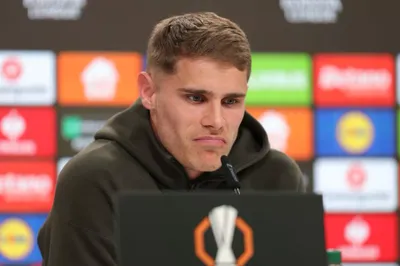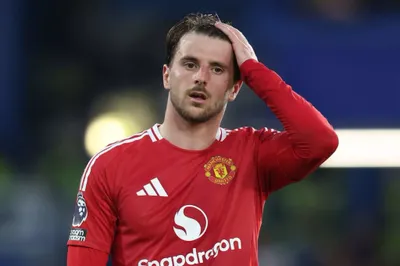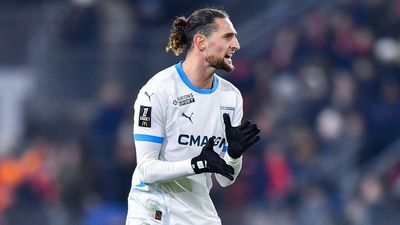Quick Betimate
Popular Leagues
-
UEFA Nations League
-
England (12)
- FA Cup
- Premier League (2)
- Championship (1)
- League 1 (1)
- League 2 (1)
- National League (2)
- National League North
- National League South
- EFL Trophy
- Premier League 2
- Championship Women
- Development League 2 (1)
- FA Cup Women
- FA Trophy
- FA Vase
- Isthmian Division One North
- Isthmian Division One South
- Isthmian Premier Division
- National League Cup
- Northern League Division One
- Northern Premier League
- Reserve Matches
- Southern Premier League Central
- Southern Premier League South
- Super League Women
- U21 Premier League Cup
- Northern Ireland Championship
- Northern Ireland Championship Women
- Northern Ireland Cup
- Northern Ireland Intermediate Cup
- Northern Ireland League Cup Women
- Northern Ireland Play-Offs
- Northern Ireland Premier
- Northern Ireland Premier Intermediate League
- Northern Ireland Premier League Women (4)
- Northern Ireland Reserve League
- Scotland Regional Cup
- Wales League Cup Women
-
Japan J-League Cup (7)
-
UEFA Champions League (1)
-
Spain (89)
- La Liga (10)
- Segunda (11)
- Tercera Group 1 (2)
- Tercera Group 2 (2)
- Tercera Group 3 (2)
- Tercera Group 4 (2)
- Tercera Group 5 (2)
- Tercera Group 6 (2)
- Tercera Group 7 (2)
- Tercera Group 8 (2)
- Tercera Group 9 (2)
- Tercera Group 10 (2)
- Tercera Group 11 (2)
- Tercera Group 12 (2)
- Tercera Group 13 (2)
- Tercera Group 14 (2)
- Tercera Group 15 (2)
- Tercera Group 16 (2)
- Tercera Group 17 (2)
- Tercera Group 18 (2)
- Youth League
- Copa De La Reina (1)
- Copa del Rey
- Kings League - 40 mins play (1)
- Primera Division RFEF Group 1 (10)
- Primera Division RFEF Group 2 (10)
- Primera Federacion Women
- Primera Women
- Queens League - 40 mins play
- Regional Cup
- Regional League
- Regional League Play-Offs
- Segunda Division RFEF Group 1
- Segunda Division RFEF Group 2
- Segunda Division RFEF Group 3
- Segunda Division RFEF Group 4
- Segunda Division RFEF Group 5
- Segunda Division RFEF Play-Offs (10)
- Segunda Federacion Women
- Tercera - Play-Offs
- Tercera Federacion Women
- Women Regional League
- Women Segunda Play-Offs
-
USA (802)
-
UEFA Europa League (1)
-
Germany (83)
- Bundesliga I
- Bundesliga II
- DFB Pokal (1)
- Regionalliga Bayern
- Regionalliga North
- Regionalliga North East
- Regionalliga South West
- Regionalliga West
- Oberliga Baden-Wuerttemberg (9)
- Oberliga Bayern North
- Oberliga Bayern South
- Oberliga Bremen
- Oberliga Hamburg
- Oberliga Hessen (10)
- Oberliga Mittelrhein (8)
- Oberliga Niederrhein (9)
- Oberliga Niedersachsen
- Oberliga NOFV Nord (8)
- Oberliga NOFV Sud (8)
- Oberliga Rheinland-Pfalz/Saar (5)
- Oberliga Schleswig-Holstein
- Oberliga Westfalen (8)
- 3. Liga
- Bundesliga II Play-Offs (2)
- Bundesliga II Women
- Bundesliga Play-Offs (2)
- Bundesliga U19
- Bundesliga Women
- DFB Pokal Women
- Oberliga Play-Offs (6)
- Regionalliga Play-Offs (6)
- U19 Cup (1)
-
Italy (20)
- Serie A (10)
- Serie B (2)
- Serie C Group A
- Serie C Group B
- Serie C Group C
- Campionato Nazionale
- Campionato Primavera 1
- Campionato Primavera 2
- Serie D
- Coppa Italia
- Coppa Italia Women
- Campionato Primavera 3
- Campionato Primavera 4
- Serie A Women
- Serie B Play-Offs (2)
- Serie B Women
- Serie C Play-Offs (4)
- Serie C Super Cup
- Serie D Play-Offs (2)
- U19 League Women
-
France (6)
-
Netherlands (19)
-
Scotland (3)
-
Japan J-League (2)
-
Lebanon League (1)
-
Indonesia Liga 1 (9)
-
Greece Super League 1 (3)
-
Georgia Erovnuli Liga (5)
-
UAE Premier League (4)
-
Slovakia Super Liga (2)
-
Esport (206)
Other Leagues
-
Albania
-
Algeria (3)
-
Andorra (1)
-
Angola (8)
-
Argentina (86)
- Nacional B (19)
- Primera B Metropolitana (5)
- Primera C Metropolitana (12)
- Reserve League (1)
- Cup (11)
- Torneo A (18)
- Copa Santa Fe
- Championship Women (2)
- Copa de la Liga Profesional
- Copa Santa Fe Women
- Copa Santa Fe Women - 80 mins play
- Liga Profesional (1)
- Liga Profesional Reserves (15)
- Nacional Reserve League (2)
- Regional League
- Youth League
-
Armenia (9)
-
Aruba (1)
-
Australia (134)
- A-League (2)
- A-League Women
- Capital Territory NPL2 (4)
- Capital Territory NPL2 U23 League
- Capital Territory Premier League (4)
- Capital Territory Premier League Women (1)
- Capital Territory Premier League Women Reserves
- Capital Territory U23 League
- Cup
- Cup Qualifying (13)
- Darwin Premier League
- FFA Cup Qualifying
- New South Wales League 1 (8)
- New South Wales League 2
- New South Wales NPL Women (7)
- New South Wales NPL2 Women
- New South Wales Premier League (8)
- New South Wales U20 League (1)
- Northern NSW Division 1 (1)
- Northern NSW Premier League (2)
- Northern NSW Premier League Women
- Northern NSW Reserves League (1)
- NPL Queensland (6)
- NPL Queensland U23 (1)
- NPL Queensland Women (5)
- NPL Victoria (7)
- NPL Victoria U23
- NPL Victoria Women (6)
- NSW League 1 U20
- NSW League 2 U20
- Queensland PL 2 U23
- Queensland PL U23
- Queensland Premier League (6)
- Queensland Premier League 2 (6)
- Queensland Premier League 2 Women
- Queensland Premier League 3
- Queensland Premier League 4
- Queensland Premier League Women
- SA Premier League Reserves
- SA Premier League Women (5)
- SA Premier League Women Reserves
- South Australia Premier League (6)
- South Australia State League 1 (6)
- South Australia State League Reserves
- Sunday League Premier Division
- Sunday League Premier Division Reserve
- Tasmania Championship (4)
- Tasmania Championship 1
- Tasmania Championship Women
- Tasmania NPL U21 League
- Tasmania Premier League (4)
- Tasmania South Division 1
- Tasmania Super League Women
- Victoria PL 1 U23
- Victoria Premier League 1 (4)
- Victoria Premier League 2 (3)
- Victoria Premier League Women
- Victoria State League 1
- Victoria State League 1 Reserves
- Victoria State League 2
- Victoria State League 2 Reserves
- WA Premier League Women (1)
- WA Premier League Women U21
- WA State Cup Women
- WA State League 1 Reserves
- Western Australia Premier League (6)
- Western Australia State League 1 (6)
- Western Australia State League 1 Women
- Western Australia State League 2
- Western Australia U23 League
- Australian Matches
-
Austria (39)
-
Azerbaijan (11)
-
Bahrain (6)
-
Bangladesh (5)
-
Barbados
-
Belarus (19)
-
Belgium (1)
-
Benin
-
Bhutan
-
Bolivia (16)
-
Bosnia & Herzegovina (14)
-
Botswana (8)
-
Brazil (183)
- Serie A (11)
- Serie B (10)
- Serie C (10)
- Campeonato Amapaense
- Campeonato Baiano 2 (5)
- Campeonato Brasileiro A2 Women (8)
- Campeonato Brasileiro Serie B U20 (4)
- Campeonato Carioca A2 (1)
- Campeonato Carioca B (5)
- Campeonato Gaucho 2 (7)
- Campeonato Goiano 2 (4)
- Campeonato Maranhense
- Campeonato Mineiro 2 (6)
- Campeonato Mineiro U20 (6)
- Campeonato Paranaense 2 (5)
- Campeonato Paulista A4
- Campeonato Paulista U20 (24)
- Catarinense 2 (4)
- Copa Espirito Santo (7)
- Copa Nordeste (4)
- Copa Rio Women
- Copa Verde
- Matches
- Matches Women
- Paraense
- Paulista Cup (11)
- Paulista Serie B
- Paulista Women (4)
- Serie A U20 (10)
- Serie A1 Women (8)
- Serie A2 Women
- Serie A3 Women (8)
- Serie D (3)
- U20 Cup
- U20 League (2)
- U20 Women Cup
- Copa do Brasil (16)
- Women’s Friendly
-
Bulgaria (18)
-
Burkina Faso
-
Burundi
-
Cambodia
-
Cameroon (2)
-
Canada (8)
-
Chile (23)
-
China (49)
-
Colombia (12)
-
Costa Rica (2)
-
Côte d’Ivoire
-
Croatia (20)
-
Cuba
-
Cyprus
-
Czech Republic (90)
-
Denmark (55)
-
Djibouti
-
Dominica
-
Dominican Republic
-
Ecuador (17)
-
Egypt (23)
-
El Salvador (2)
-
Estonia (21)
-
Ethiopia (9)
-
Faroe Islands (14)
-
Fiji
-
Finland (105)
-
Gambia (3)
-
Georgia (10)
-
Ghana (9)
-
Gibraltar
-
Greece (3)
-
Guatemala
-
Haiti (8)
-
Honduras (1)
-
Hong Kong SAR China (5)
-
Hungary (15)
-
Iceland (47)
-
India (2)
-
Indonesia (11)
-
Iran (2)
-
Iraq (4)
-
Ireland (19)
- Republic of Ireland FAI Cup
- Republic of Ireland FAI Intermediate Cup
- Republic of Ireland First Division (5)
- Republic of Ireland Leinster Senior Cup
- Republic of Ireland Leinster Senior League (3)
- Republic of Ireland Munster Senior Cup
- Republic of Ireland Munster Senior League
- Republic of Ireland National League Women (6)
- Republic of Ireland Premier Division (5)
- Republic of Ireland U20 League
-
Israel (9)
-
Jamaica (1)
-
Japan (67)
-
Jordan
-
Kazakhstan (14)
-
Kenya (9)
-
Kuwait (2)
-
Kyrgyzstan
-
Latvia (17)
-
Lebanon (1)
-
Liechtenstein (1)
-
Lithuania (22)
-
Luxembourg (17)
-
Macau SAR China
-
Macedonia (1)
-
Malawi (9)
-
Malaysia
-
Mali
-
Malta
-
Mauritania
-
Mexico (2)
-
Moldova (3)
-
Mongolia
-
Montenegro (10)
-
Morocco (1)
-
Mozambique (1)
-
Myanmar (Burma) (2)
-
Namibia
-
Nepal (2)
-
New Zealand (16)
-
Nicaragua (1)
-
Niger
-
Nigeria (10)
-
Norway (99)
- Eliteserien (8)
- Division 1 (8)
- Cup (8)
- Cup Women (8)
- Division 1 Play-Offs
- Division 1 Women (6)
- Division 2 Group 1 (7)
- Division 2 Group 2 (7)
- Division 2 Group 3
- Division 3 Group 1 (7)
- Division 3 Group 2 (7)
- Division 3 Group 3 (7)
- Division 3 Group 4 (7)
- Division 3 Group 5 (7)
- Division 3 Group 6 (7)
- Interkretsserie U19
- Toppserien Women (5)
- U19 Elite League
- Youth Cup
-
Oman
-
Panama (4)
-
Paraguay (16)
-
Peru (18)
-
Philippines
-
Poland (76)
-
Portugal (13)
-
Puerto Rico
-
Qatar
-
Romania (28)
-
Russia (31)
-
Rwanda (10)
-
Saint Kitts and Nevis
-
San Marino (1)
-
Saudi Arabia (13)
-
Senegal (6)
-
Serbia (17)
-
Seychelles
-
Sierra Leone
-
Singapore (7)
-
Slovakia (23)
-
Slovenia (13)
-
Solomon Islands
-
South Africa (1)
-
South Korea (24)
-
Suriname
-
Sweden (108)
- Europe Friendlies
- Allsvenskan Qualification
- Superettan Qualification
- 1.div Norra (8)
- Cup (1)
- 1.div Södra (8)
- 2.div Norra Götaland (7)
- 2.div Norra Svealand (7)
- 2.div Norrland (16)
- 2.div Södra Götaland (7)
- 2.div Södra Svealand (7)
- 2.div Västra Götaland (7)
- Allsvenskan (2)
- Cup Qualification (6)
- Cup Women (1)
- Damallsvenskan (1)
- Div 1 Relegation (8)
- Elitettan (7)
- Juniorallsvenskan (7)
- Superettan (8)
-
Switzerland (21)
-
Taiwan
-
Tajikistan
-
Tanzania (16)
-
Thailand (2)
-
Togo
-
Trinidad and Tobago (6)
-
Tunisia (16)
-
Turkey (23)
-
Uganda (1)
-
Ukraine (20)
-
United Arab Emirates (18)
-
Uruguay (6)
-
Uzbekistan (12)
-
Venezuela (4)
-
Vietnam (15)
-
Wales
-
Zambia
-
Zimbabwe
When Do Footballers Hang Up Their Boots? Unveiling the Footballer Retirement Age

Football is a sport loved and followed by millions of fans around the world. The players who participate in this beautiful game dedicate their lives to training, competing, and entertaining the masses. However, like any other profession, footballers also face the inevitable question of retirement. Therefore, what age do footballers retire is a topic that has garnered significant attention and discussion within the football community.
Footballer retirement age refers to the point in a player's career when they decide to step away from professional competition and cease playing the sport at a competitive level. It marks the transition from an active player to a retired one, where the individual no longer participates in official matches or trains with the intention of continuing their football career.
Why do football players retire?
Injury History and Recovery Time
Football is a physically demanding sport, and players often face injuries throughout their careers. As players age, their bodies may become more susceptible to injuries, and recovery time may increase. Persistent or recurring injuries can significantly impact footballer retirement age, as they may wish to prioritize their long-term health and well-being over their playing career.
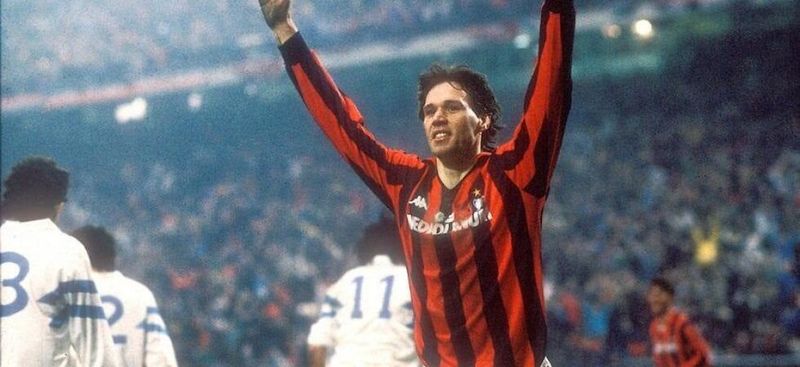
Marco van Basten had to retire football because of injury
An excellent illustration of retirement resulting from a physical injury is that of Marco van Basten, a player for AC Milan. He was compelled to retire at a mere age of 28 due to a persistent ankle injury that hindered his ability to perform effectively in high-level matches.
Performance Decline
As football players age, they may experience a decline in their on-field performance and it may become the factor decide when do footballers retire. This decline can be attributed to various factors, including a decrease in speed, agility, reaction time, and overall skill level. When athletes feel that their performance is no longer up to par, they may consider retiring from the sport to maintain their reputation and avoid becoming a liability to their team.

Gerard Pique accounced retirement football after the performance decline in a long time
Gerard Pique, a former of Barcelona, accounced retirement football after the performance decline in a long time.
Contract Situations
Contract situations can influence footballer retirement age. Players nearing the end of their contracts may assess their market value, future opportunities, and potential offers from other clubs before deciding whether to retire or continue playing. Financial considerations, length of contract, and potential salary offers all play a role in determining footballer retirement age.
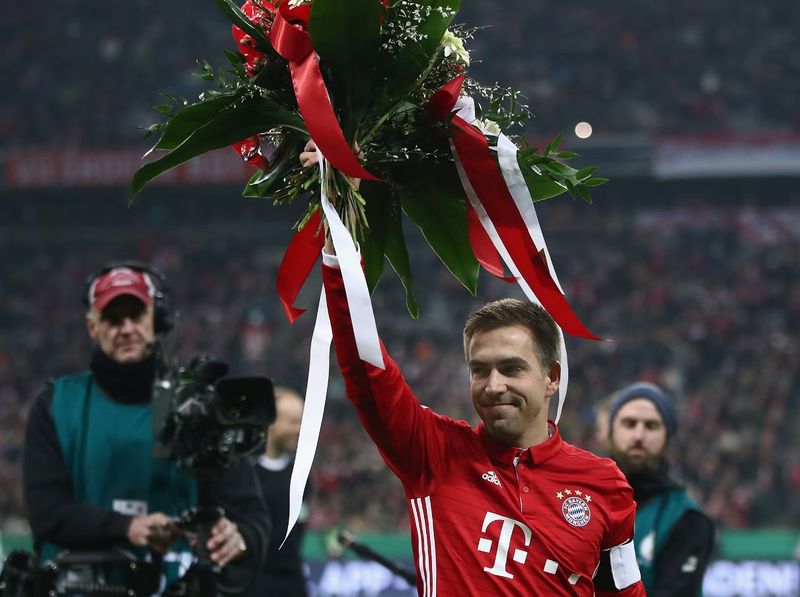
Philip Lahm decided to retire at the age of 33 due to his club's plans
A case in point regarding footballer retirement age is Philip Lahm, who decided to retire at the age of 33 due to his club's plans that posed an obstacle to his thriving career. On the flip side, numerous footballers choose not to retire due to the enticing offers and lucrative contracts that come their way, providing ample reasons to continue playing.
Length of Career
The query regarding footballer retirement age can be addressed by examining the duration of careers of various football players over the course of the century. Those who commence their professional journeys at an early age often enjoy lengthier careers, while those who begin later tend to have shorter careers and retire at a younger age. Additionally, a player's accomplishments and opportunities may also impact their retirement decisions, such as winning championships or reaching significant life milestones.
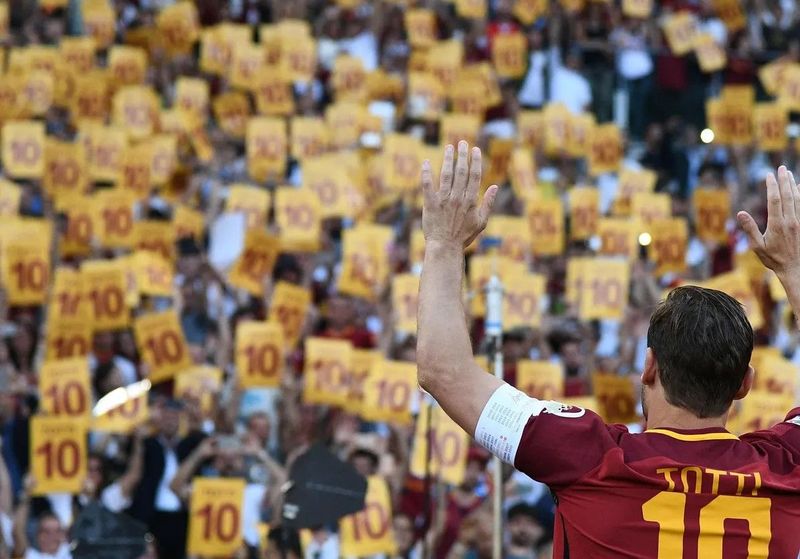
Francesco Totti retired football after a long and prosperous football career
Francesco Totti opted to retire at the age of 40, having enjoyed a long and prosperous football career, with the intention of venturing into the realm of football coaching. This exemplifies how the retirement age of a footballer is heavily contingent upon the duration of their career.
Personal Goals and Aspirations
Personal goals and aspirations can also influence footballer retirement age. Some players may have achieved all their career objectives and wish to pursue other interests outside of football, such as coaching, business ventures, or spending more time with their families. Personal fulfillment and the desire to explore new opportunities can prompt players to retire at a relatively younger age.
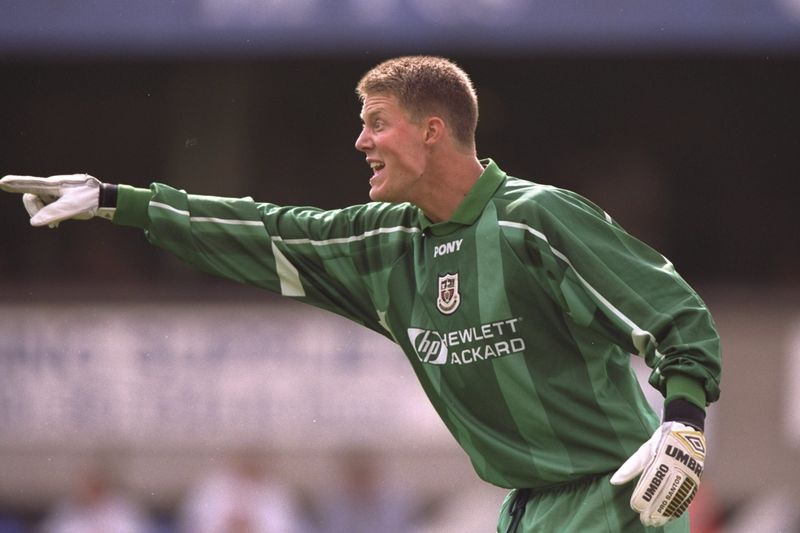
Espen Baardsen retired to pursue other interests
Espen Baardsen serves as an example of a footballer who retired to pursue other interests. He was an American goalkeeper who had stints with clubs like Tottenham Hotspur, Everton, and others. Despite possessing dual nationality, he eventually switched to representing Norway and participated in the 1998 World Cup with them. However, the continuous traveling and playing took its toll on him. Baardsen made the decision to retire in 2000 in order to follow his passion for traveling. Subsequently, he became a fund manager and partner at an asset management company in London.
Financial Stability
The financial stability of a football player is an essential factor determine what age do footballers retire. If a player has accumulated substantial wealth and secured their financial future, they may choose to retire earlier and enjoy their post-football life. Conversely, financial instability or the need to continue earning income may motivate players to prolong their careers and delay retirement.
Losing playing motivation
Factors such as motivation, passion for the game, and mental health play a significant role in determining when do footballers retire. Some players may decide to retire when they sense a loss of passion for the sport or when they face mental health challenges.
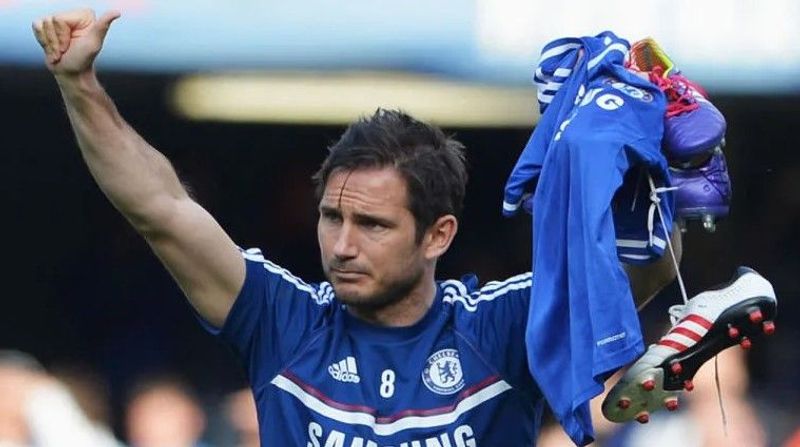
Frank Lampard retired after losing playing motivation
Renowned Chelsea player Frank Lampard chose to retire at the age of 38, citing a lack of motivation to carry on playing. This illustrates how motivation and mental health can alter the timeline for footballers' retirement.
What age do footballers retire?
Football retirement age for different continent
Determining what age do footballers retire depend on many factors, including continent where they play. While each football player experiences unique physical attributes and aging processes, certain patterns can provide insight into the general retirement age. Broadly speaking, the average retirement age for footballers hovers around 35 years.
As football players enter their thirties, their performance tends to decline due to a decrease in physical capabilities. The footballer retirement age range for football players varies worldwide and is primarily influenced by the level of competition they engage in.
In Europe, footbaler retirement age is between 33 and 37. This is primarily attributed to the high quality of European football leagues, especially the top five leagues in England, Spain, Italy, Germany, and France. The pace of the game in these leagues is faster and physically demanding, making it more challenging for players to continue playing beyond their thirties. Some players may choose to extend their careers by joining lower-tier European leagues or by pursuing opportunities in different continents.
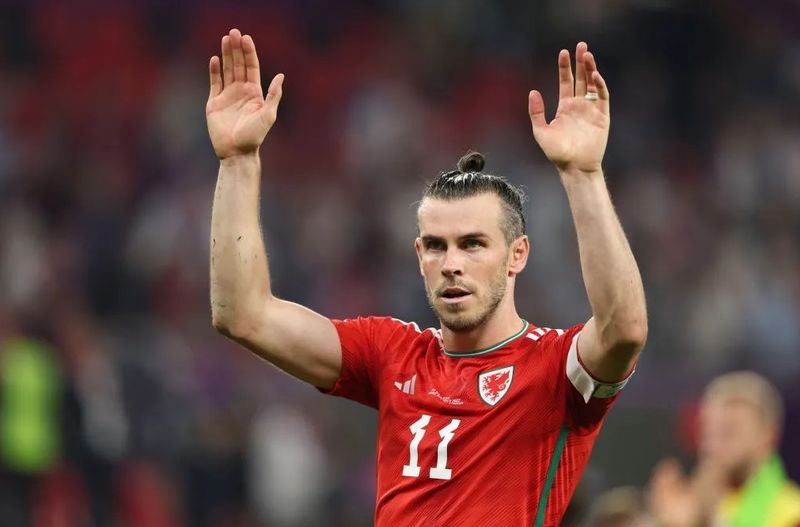
In Europe, football players typically retire between the ages of 33 and 37
In Latin America, players tend to have slightly longer careers and having the higher average footballer retirement age compared to Europe. The physical demands in these leagues are generally lower, and there are numerous leagues where players can showcase their skills. The football retirement age range in Latin America typically falls between 34 and 40.
The Asian continent has increasingly attracted European players to conclude their careers there. Many Asian clubs are willing to invest significant amounts of money to attract renowned players from European clubs, thereby elevating the quality of their own competitions. The playing time for football players in Asia has extended, resulting in the average footballer retirement age range of approximately 34 to 38.
Football retirement age for different positions
When do footballers retire also depends on their position. Each position, including goalkeeper and midfielder, has its own range of retirement ages. Here is an overview of when footballers typically retire at different positions:
Goalkeepers
When asked about the footballer retirement age , goalkeepers usually mention an average football retirement age range of 36 to 40 years. This is because goalkeepers experience reduced physical demands and develop expertise over the years. However, there have been exceptions, with some goalkeepers continuing their careers beyond this age range.
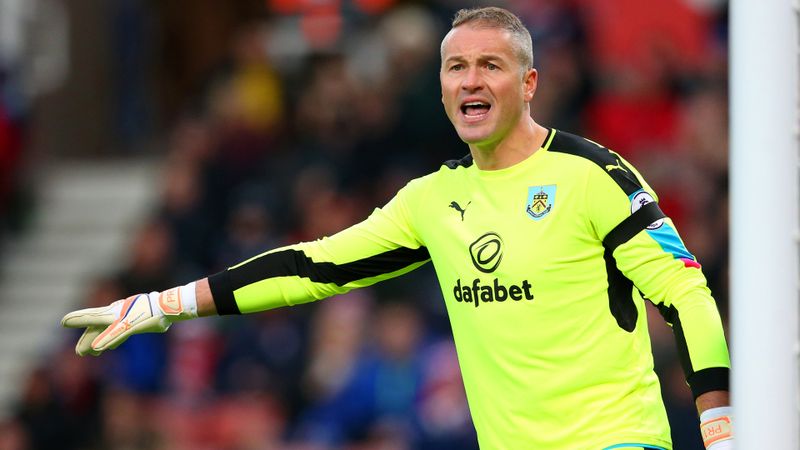
Paul Robinson, Ex-England goalkeeper retired at the age of 37
Paul Robinson, Ex-England goalkeeper, serves as an example of a football player who retired late. Paul Robinson retired from professional football at the age of 37, having enjoyed a successful career.
Fullbacks
The average football retirement age for fullbacks differs from that of goalkeepers. Typically, fullbacks retire between the ages of 30 and 36. As these players contribute to the team's attacking play, they need to maintain full strength and agility to move quickly. The physical demands placed on fullbacks often lead to early retirements, primarily due to health concerns.
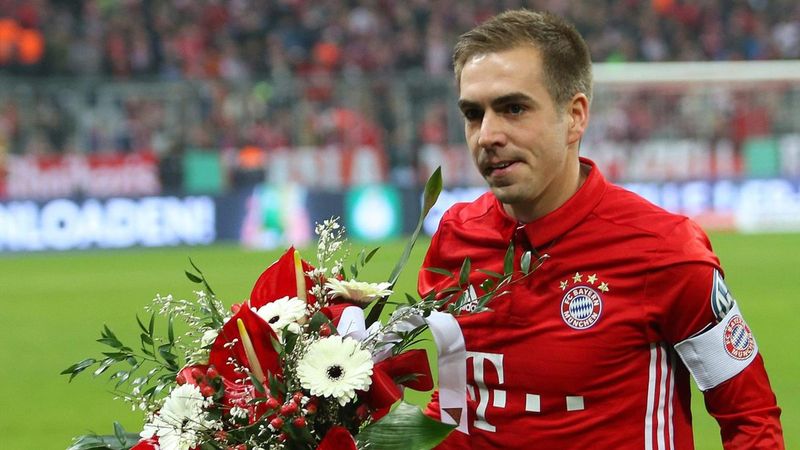
Philipp Lahm retired at the age of 33
Philipp Lahm retired at the age of 33. He was widely regarded as one of the best fullbacks, known for his exceptional defensive skills.
It's important to note that these retirement ages are general guidelines, and individual players may retire earlier or later depending on various factors such as their physical condition, performance, and personal decisions.
Center Backs
The football retirement age for center-backs, also known as central defenders, is slightly higher compared to fullbacks. When considering the question of at what age do footballers retire, center-backs typically retire between the ages of 30 and 38. This is because their position doesn't require as much physical exertion as fullbacks, allowing them to maintain their fitness and stability for a longer period.
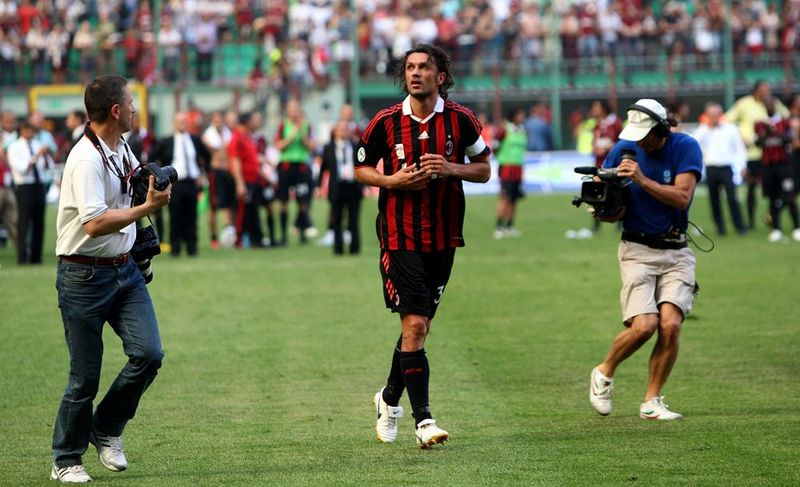
Paolo Maldini retired at the age of 41
An excellent example is Paolo Maldini, a legendary player for AC Milan. Maldini transitioned to the central defender position, which enabled him to continue playing for many years. He officially retired at the age of 41, showcasing his longevity and skill.
Midfielders
The football retirement age for midfielders differs from other positions. Midfielders usually retire between the ages of 30 and 35. This position demands both tactical awareness and optimal physical strength to perform at a high level. Midfielders are prone to injuries, which can contribute to an earlier retirement age. However, some midfielders surpass this age bracket and retire well after this limit by prioritizing their health and fitness.
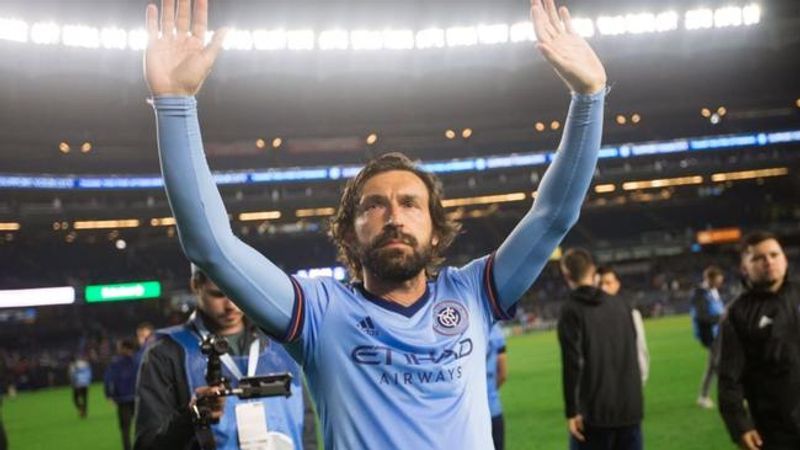
Andrea Pirlo retired at the age of 38
AC Milan's Andrea Pirlo is a notable example, as he retired at the age of 38. Pirlo was an exceptional midfielder renowned for his superb free-kick ability.
Strikers
Strikers, who rely heavily on physical strength for successful performances, often retire at an earlier age. The answer to the question of at what age do footballers retire is quite surprising for strikers. Most strikers retire before the age of 30, with the typical retirement age ranging from 29 to 34. This is primarily due to the significant risk of severe injuries that can force them to stop playing.
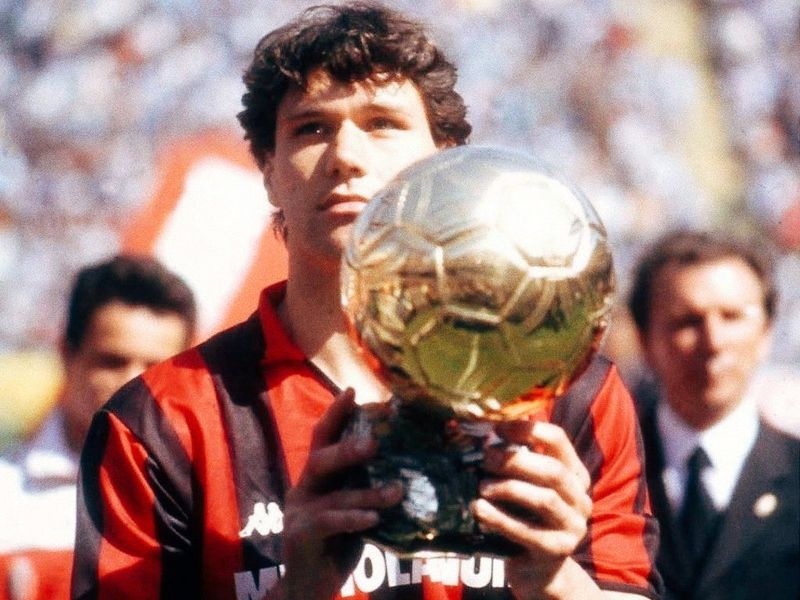
Marco van Basten retired at the age of 28
A prominent example of early retirement is Marco van Basten, who retired at the age of 28 due to a severe injury that severely impacted his performance.
Examples of football players who retired too early
George Best
George Best, a true legend of football, is widely regarded as one of the greatest players of all time, having represented Manchester United and the Northern Ireland national team.
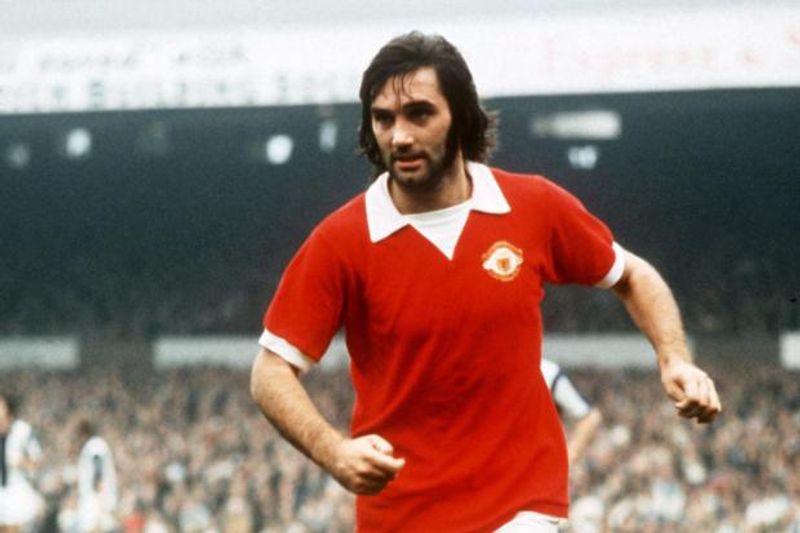
George Best
At the age of 28, George Best made the difficult decision to retire from playing football. His goals and playing style were renowned for their beauty and incredible dribbling skills, which left the world in awe. However, his career was marred by struggles with alcohol abuse and an unconventional lifestyle, leading to a decline in performance and a negative public image. Consequently, his contract with Manchester United, the club where he had made an impressive 470 appearances, was terminated.
George Best's talent and impact on the game will always be remembered, but his personal struggles serve as a cautionary tale about the importance of maintaining a balanced and healthy lifestyle, both on and off the field.
Carlos Roa
The story of Carlos Roa, a goalkeeper and member of the Argentinian national team, is fascinating. He is widely remembered as the goalkeeper who did not concede a single goal during the 1998 World Cup.
Roa became a hero during the knockout stage game against England, where Argentina emerged victorious after a thrilling penalty shootout. However, at the age of 29 - an early footballer retirement age, he made the decision to stop playing professional football. His retirement was driven by his strong commitment to his religious beliefs, as he chose to dedicate the rest of his life to his faith.
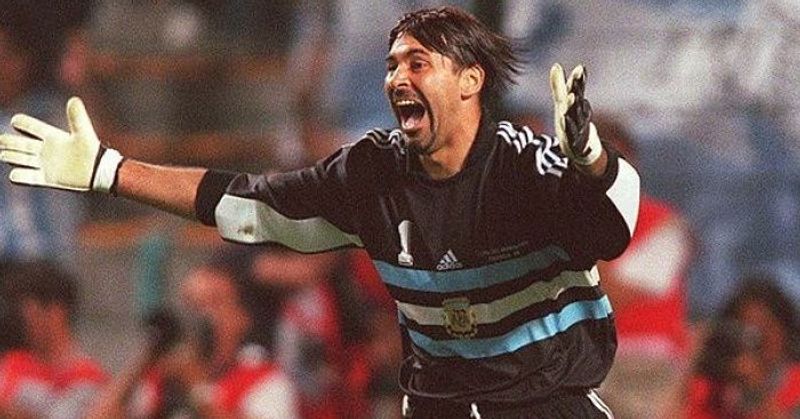
Carlos Roa
Carlos Roa's remarkable performance and his decision to prioritize his religious calling over his football career make his story a unique and compelling one in the world of football.
Chris Naumoff
Chris Naumoff, a promising talent in the Australian A-League, made a significant impact as a player. He quickly established himself as a regular first-team player for Sydney FC, showcasing his remarkable skills on the field. His exceptional performances caught the attention of clubs abroad, leading to a transfer opportunity in Spain.
Chris Naumoff reached an agreement with Spanish club Numancia, signaling an exciting new chapter in his career. However, during the mandatory medical tests before finalizing the deal, an unexpected revelation occurred. It was discovered that Chris was suffering from hypertrophic cardiomyopathy, a condition characterized by the thickening of a portion of the heart.
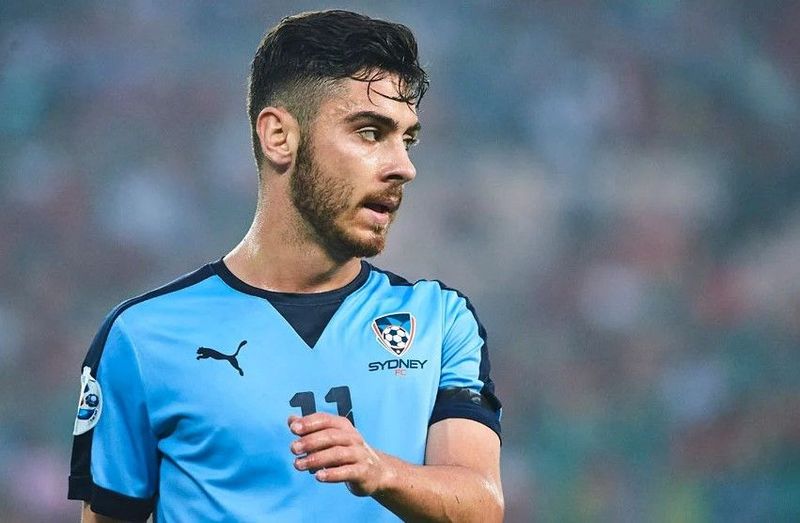
Chris Naumoff
This unfortunate discovery abruptly force him decide his football retirement age is 21. The news of his health condition was devastating, as it meant he could no longer continue playing professionally.
The story of Chris Naumoff serves as a reminder of the unpredictable nature of life and the challenges that can abruptly alter one's path. Despite his potential and early success, his career was cut short by circumstances beyond his control.
Examples of football players who have retired too old
Ezzeldin Bahader
Ezzeldin Bahader, an Egyptian individual, holds the official recognition from FIFA, the governing body of football, as the player having the biggest footballer retirement age. Remarkably, at the age of 74 years and 125 days, he achieved a Guinness World Record by stepping onto the football pitch.
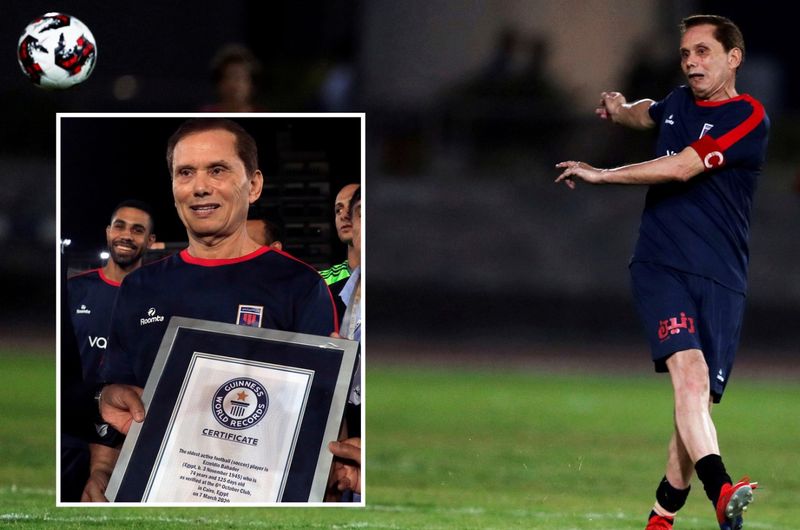
Ezzeldin Bahader
Ezzeldin Bahader's incredible feat serves as an inspiration and a testament to the enduring passion and love for the sport. His achievement not only showcases his personal dedication but also challenges the conventional notions of age and its limitations in pursuing one's dreams.
Paolo Maldini
Paolo Maldini is a name synonymous with a long and illustrious career as well as high footballer retirement age. From 1985 to 2009, while many players came and went at AC Milan, Maldini stood out as more than just a player. He was the captain and leader of the team, guiding them to numerous accomplishments and trophies. Even today, he is celebrated as one of the greatest players in the history of the Italian club.

Paolo Maldini
Maldini's impact and exceptional defensive skills allowed him to continue playing football until the remarkable age of 41, when he ultimately decided to retire. His unwavering loyalty to AC Milan is a remarkable aspect of his legacy, as he spent his entire career playing for the club that he first debuted for at the tender age of 17.
Paolo Maldini's name will forever be etched in the annals of football history as a player who exemplified loyalty, skill, and leadership throughout his remarkable career at AC Milan.
Francesco Totti
Francesco Totti, another notable Italian player, concluded his career at the age of 41. As the captain of AS Roma, his immense influence on the team is evident in his nickname, "The Prince of Rome." Totti exhibited mastery on the field, displaying exceptional technical skills and delivering incredibly powerful shots. Throughout his playing career, he remained dedicated to AS Roma, the club he represented with unwavering loyalty.
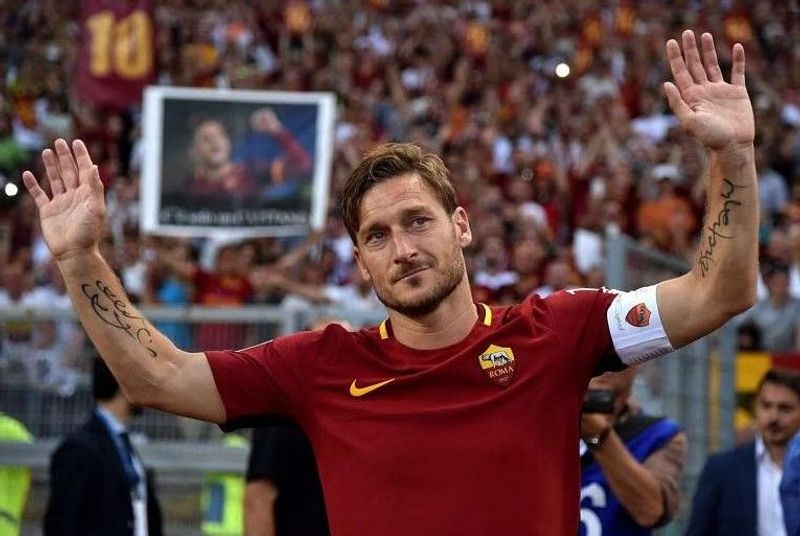
Francesco Totti
Totti's remarkable tenure at AS Roma is highlighted by his impressive record of 619 appearances and 250 goals. His contributions to the club solidified his status as a legend and endeared him to fans worldwide.
Francesco Totti's name will forever be associated with AS Roma, serving as a testament to his extraordinary talent, loyalty, and undeniable impact on the field.
Challenges Faced by Retired Footballers
Retirement is a significant milestone in the life of a professional footballer. While the exhilarating career on the field comes to an end, retired footballers often encounter a unique set of challenges as they transition into a new phase of life.
Transition from Active Player to Retirement
Retiring from professional football can be a daunting experience for many players. The transition from the structured and fast-paced world of football to a more relaxed lifestyle can be challenging. The sudden change in routine, loss of camaraderie with teammates, and the absence of the adrenaline rush that comes with playing in front of thousands of fans can leave retired footballers feeling disoriented.
Loss of Identity
For many footballers, their identity is closely tied to their profession. They are known and recognized as athletes, and the transition to retirement often brings a loss of identity. Retired footballers may struggle with finding a new purpose and sense of self-worth outside of the sport. It requires a period of adjustment and self-discovery to redefine themselves beyond their playing careers.
Lack of Structure and Routine

Lack of Structure and Routine is one of issues players have to face after retirement
During their playing days, footballers have a well-defined structure and routine. Training sessions, matches, and travel arrangements provide a sense of purpose and direction. However, in retirement, this structure disappears, and it can be challenging to establish a new routine. The sudden void left by the absence of regular training sessions and fixtures can leave retired footballers feeling unstructured and uncertain about how to fill their days.
Psychological and Emotional Adjustments
Retired footballers often face psychological and emotional challenges as they adjust to life after retirement. The emotional rollercoaster associated with leaving a career they love, combined with the pressures of fame and public scrutiny, can take a toll on their mental well-being.
Loss of Competitive Environment
Competing at the highest level in football fosters a strong sense of competition among players. Retirement means stepping away from the competitive environment that has been a constant throughout their lives. This sudden absence of competition can lead to a feeling of emptiness and a lack of motivation.
Emotional Turmoil

Players after retirement may have to face emotional turmoil
Retired footballers may experience a range of emotions, including grief, sadness, and a sense of loss. The transition from being in the spotlight to a more private life can be challenging, as they may miss the adulation and attention they received during their playing days. Coping with the emotional turmoil requires support from family, friends, and potentially professional help to navigate this new phase of life successfully.
Financial Management and Career Planning
Another significant challenge faced by retired footballers is the need for effective financial management and career planning. While professional football can provide substantial earnings during a player's career, it is essential to plan for the future and manage finances wisely to ensure long-term financial security.
Income Disparity
Retired footballers often experience a significant drop in income compared to their playing days. It is crucial for them to adjust their lifestyle and spending habits accordingly. Without proper financial planning, they may face financial difficulties in the future.
Lack of Financial Literacy

Lack of Financial Literacy is also challenges faced by retired footballers
Many footballers enter the professional arena at a young age, and financial literacy may not be a priority during their playing days. As a result, they may lack the necessary knowledge and skills to manage their finances effectively. It is crucial for retired footballers to educate themselves about investments, budgeting, and long-term financial planning to secure their financial future.
Life After Retirement
Deciding the footballer retirement age marks a significant transition in the lives of players. While their playing days may be over, a whole new world of opportunities opens up for these athletes. Beyond the field, retired footballers can explore various paths, including opportunities in coaching and mentoring, media and broadcasting roles, and business ventures and endorsements.
Coach
Many retired footballers find themselves drawn to coaching and management positions within the sport. Their wealth of experience, knowledge of the game, and understanding of the dynamics on and off the field make them valuable assets in shaping future talent. Some former players pursue coaching licenses and certifications to enhance their qualifications. They may start by coaching youth teams or work as assistant coaches before eventually progressing to lead professional teams.
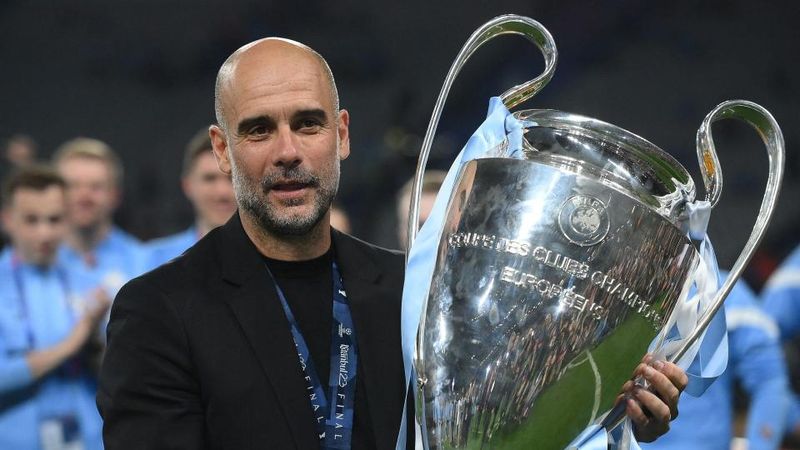
Becoming a coach may be a choice of players after retiring
It is becoming increasingly uncommon for players to transition directly from being part of a team to becoming its manager. Therefore, they must demonstrate their abilities and gradually ascend the hierarchy by starting their careers as coaches. This may involve serving as an assistant manager or taking charge of the youth team. Players often gain valuable experience in less prominent positions within clubs before being entrusted with the opportunity to occupy the manager's seat.
There are many successful coaches after retiring football such as: Pep Guardiola, Ole Gunnar Solskjaer, Frank Lampard, Zinedine Zidane,...
Owner/ roles in a football clubs
Not all players consider themselves suitable for managerial or coaching positions after determining their football retirement age, but they still desire to maintain involvement in the day-to-day operations of the club where they built their reputation. Nowadays, many clubs employ former players in ambassadorial roles, assigning them tasks such as attending meetings with organizations like UEFA, FIFA, and other representative bodies for activities like cup draws or executive discussions. David Beckham serves as a prime example, as he became president of Inter Miami, a football club in the MLS.
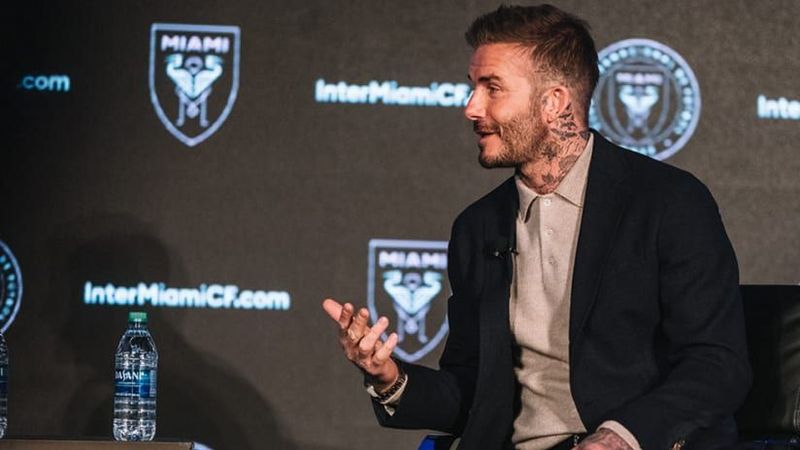
Becoming owners or works ina positions of a football club may be a choice of players after retiring
Another role within clubs that some players pursue is that of a scout. While they may not feel confident in their coaching abilities, they believe they possess the talent to identify promising players and bring them to the attention of the manager. Scouts often focus on specific regions or areas of interest, such as those where they played professionally, like Spain, France, or South America.
Football pundit/ Football journalist
In the realm of football, those who have the ability play, while those who don't, often resort to criticism. Alongside joining coaching staff, becoming a pundit is perhaps the most prevalent path pursued by former players. It's nearly impossible to tune into a football program without witnessing a former player sharing their insights and opinions on the game being discussed.
Prominent figures such as Gary Neville from Manchester United, Jamie Carragher from Liverpool, and Thierry Henry from Arsenal exemplify former players who, to varying degrees, have achieved success in their careers as television or radio pundits following retirement from football.
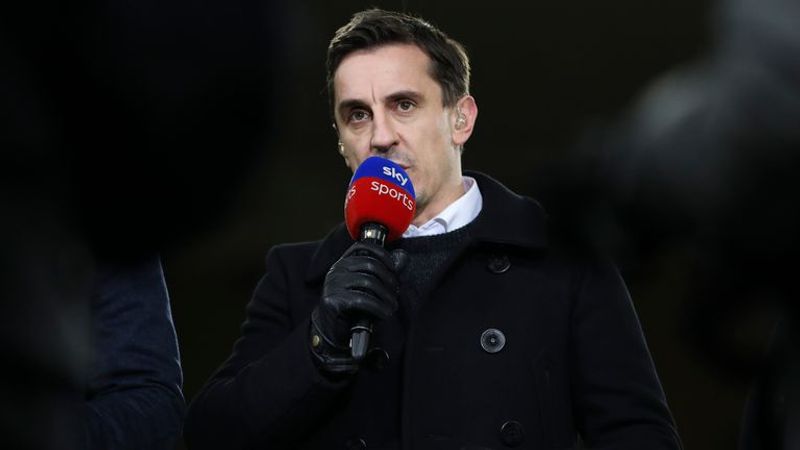
Football pundit/ Football journalist is one of the jobs that retired players do
Moreover, it's not just the major sports channels that seek the input of former players; the rise of a club's own media outlets means that ex-players can contribute on the radio, write for the club's website, or host television shows owned and operated by the very club they once represented. Additionally, pursuing a career as a football journalist is also a viable option for retired players.
Many newspapers rely on former professionals to provide their perspectives in columns, and with the increasing prevalence of online content, their opinions can generate clicks and attract readers. The advent of new media has amplified the significance of individuals who were once associated with a club, particularly if their viewpoints are controversial, as it can be the difference between success and failure in terms of audience engagement.
Entrepreneurial Pursuits
Retired footballers often explore entrepreneurial ventures after their playing careers. Their fame, influence, and financial resources can be leveraged to establish successful businesses. Some footballers invest in sports-related ventures, such as sports academies, fitness centers, or sports equipment companies. Others venture into different industries, including fashion, real estate, or hospitality, leveraging their brand value and network to thrive in the business world.

Entrepreneurial Pursuits is another choice for retired footballers
Mathieu Flamini, the former Arsenal player who often flew under the radar, has achieved remarkable success outside of football. He is now the co-founder of GF Biochemicals, a groundbreaking company that holds the distinction of being the first in the world to achieve large-scale production of levulinic acid.
Brand Ambassador
The popularity and recognition that footballers gain throughout their careers make them attractive endorsers for various brands and products. Retired footballers continue to be sought after for endorsement deals, allowing them to maintain a lucrative income stream. They become ambassadors for sports brands, fashion labels, luxury goods, and more. Their personal brand and association with excellence in football provide a valuable marketing asset for companies seeking to enhance their image and reach.

Becoming Brand Ambassador also a job/career of retired players
David Beckham has made millions over the years, modelling sportswear and clothing.
FAQs - What age do footballers retire?
- The majority of football players typically choose to retire around the age of 35. They often retire due to either injuries or the effects of aging. Since football demands significant physical prowess, it is common for players to experience a decline in fitness by the age of 35, prompting them to make the decision to retire.
- Professional footballers often have access to pension plans or retirement funds provided by their clubs or football associations. These financial instruments help secure their future after retirement.
- Coping with the transition from an active football career to retirement can be challenging for retired players. They may seek support through counseling, engage in new career paths, and lean on support networks to navigate this phase successfully.
- Yes, there are various support systems available for retired footballers, including player associations, counseling services, and career transition programs offered by football governing bodies.
- Ezzeldin Bahader set a Guinness World Record by stepping onto the pitch at a remarkable age of 74 years and 125 days.

Related Content

